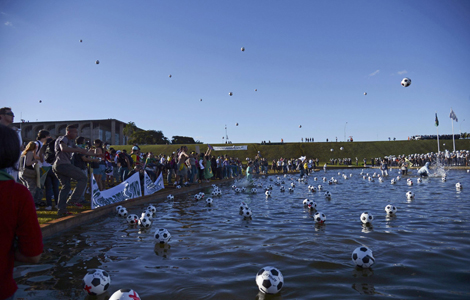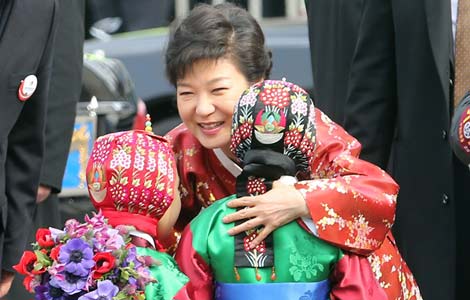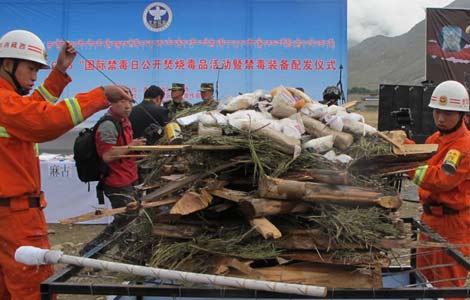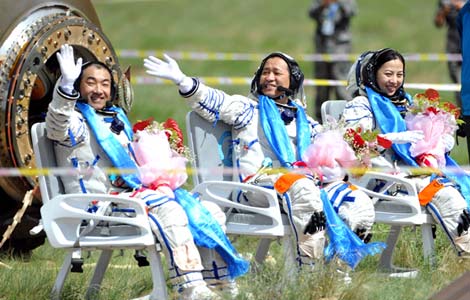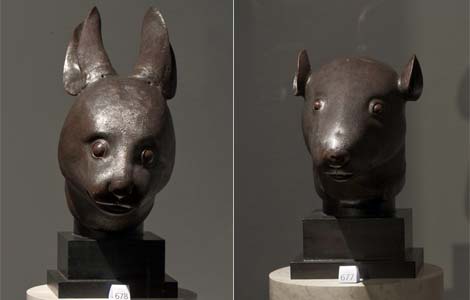Rudd returns as Australian PM after ousting Gillard
Updated: 2013-06-26 20:43
(Xinhua)
|
||||||||
|
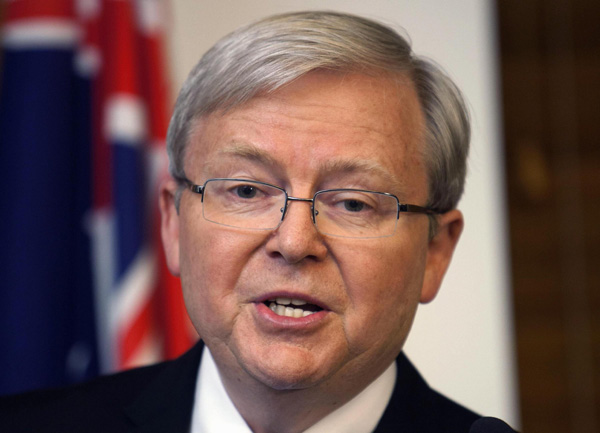 Australia's former prime minister Kevin Rudd speaks to the media at Parliament House in Canberra June 26, 2013. Rudd confirmed on Wednesday he would challenge Prime Minister Julia Gillard for the leadership of the ruling Labor Party, in a move that could see him lead the party to elections due within three months. Rudd led the Labor Party to victory in late 2007, but was dumped by his party in favour of Gillard in June 2010. [Photo/Agencies] |
Party Returning Officer Chris Hayes announced the result to reporters immediately after the conclusion of vote, which was called by Gillard after a day of internal party manoeuvring to dump her in favor of her arch-rival and predecessor, whom she had deposed in 2010.
Rudd will call on Governor-General Quentin Bryce on Thursday and will be sworn in as prime minister when she accepts his case. But he may immediately face a confidence vote in the Parliament on Thursday proposed by the opposition coalition.
The vote of Labor Party lawmakers followed months of destabilizing leadership speculation, fueled by opinion polls pointing to an election wipeout for Labor against the conservative Opposition headed by Tony Abbott.
Rudd's return as prime minister comes almost three years to the day after he was ousted in favor of Gillard, who is Australia's first female prime minister, and follows two aborted leadership attempts, the most recent in March.
Also at the caucus ballot, Anthony Albanese, current minister for infrastructure and transport, was voted as deputy leader of the party and will become deputy prime minister and treasurer.
At the press conference after the ballot, Gillard admitted her defeat. "Kevin Rudd has been elected as leader of the federal Labor Party. I congratulate Mr Rudd on his election."
She elaborated on the achievements the government had achieved under her leadership, especially the school education reform and the disability insurance scheme. In the area of foreign policies, Gillard mentioned that Australia's relations with its largest trade partner, China, have been lifted to strategic partnership during her visit to China in April.
She also said she would not run for member of Parliament in the upcoming federal election scheduled on September 14.
"In accordance with the pledge I gave earlier today I announce that I will not recontest the federal electorate of Labor at the forthcoming federal election."
When Gillard called the caucus ballot Wednesday afternoon, she said the loser should retire from politics before the federal election.
Rudd and his deputy Albanese also held a press conference later Wednesday, at which Rudd said, "In recent years politics had failed the Australian people. There's just been too much negativity all round. There's been an erosion of trust, negative, destructive personal politics which has done much to bring dishonour to our Parliament but done nothing to address the urgent challenges facing our nation, our communities, our families."
He emphasized the relations between his party and Australia's business sector, calling for cooperation by both sides to face new challenges and push for further economic development.
Rudd also appealed to young Australians who are disenchanted with politics to come back to vote in the coming election.
Rudd will go to Governor-General Quentin Bryce Thursday. If Quentin Bryce accepts his case, he will be sworn in as prime minister three years and two days after being toppled by Gillard from the job.
Most Viewed
Editor's Picks

|

|

|

|

|

|
Today's Top News
Snowden still at Moscow's airport, asylum pending
Mandela still critical, Zuma cancels trip
China slams Japan's new defense white paper
US Treasury Under Secretary to visit China
Door opens on better homes for poor
Tougher punishments for polluters proposed
Park sees blueprint for ties
Long lost weekend
US Weekly

|

|
